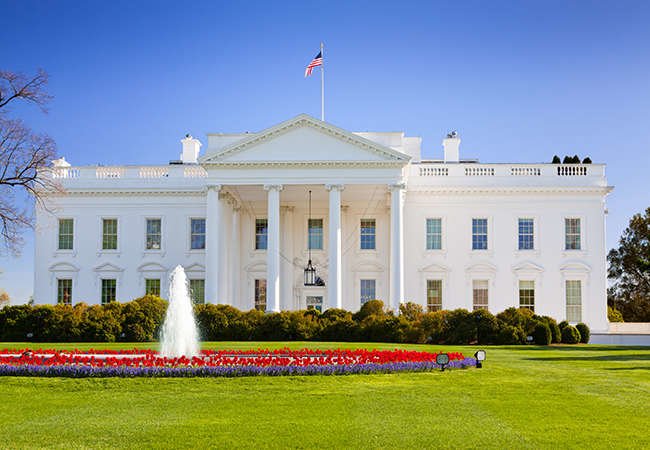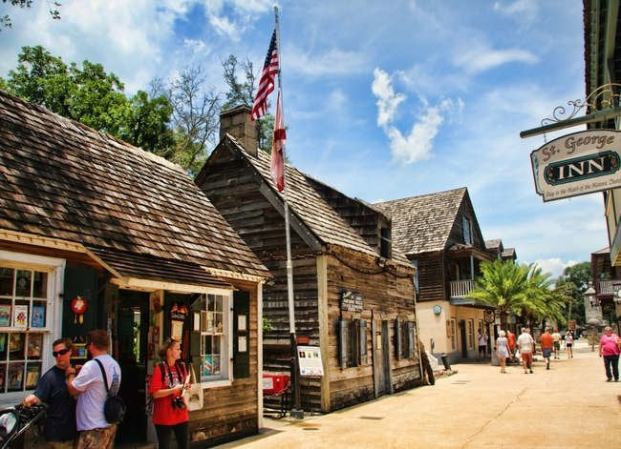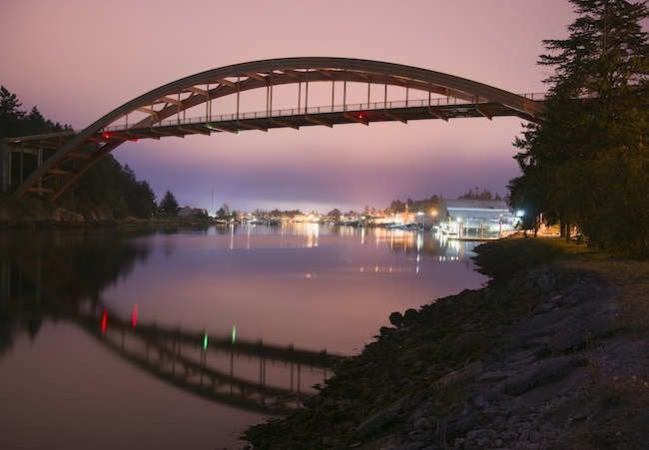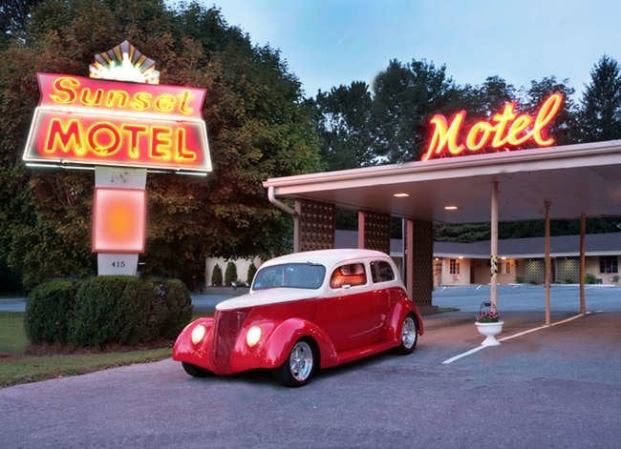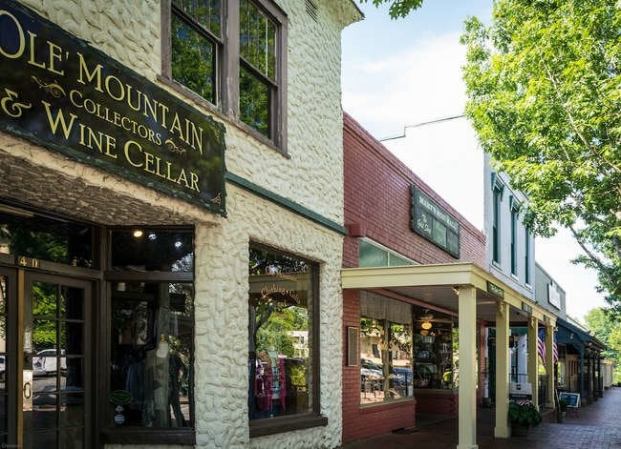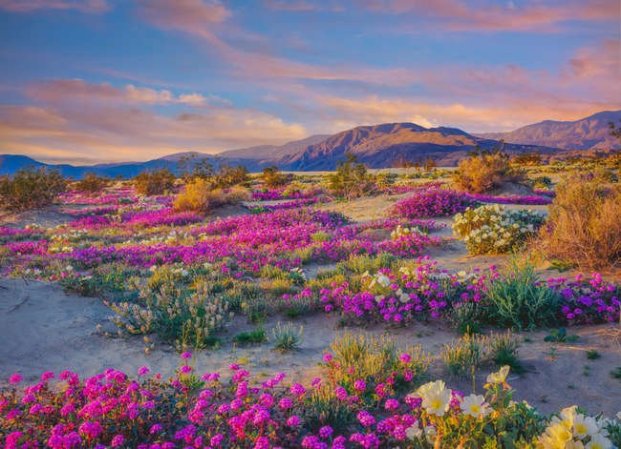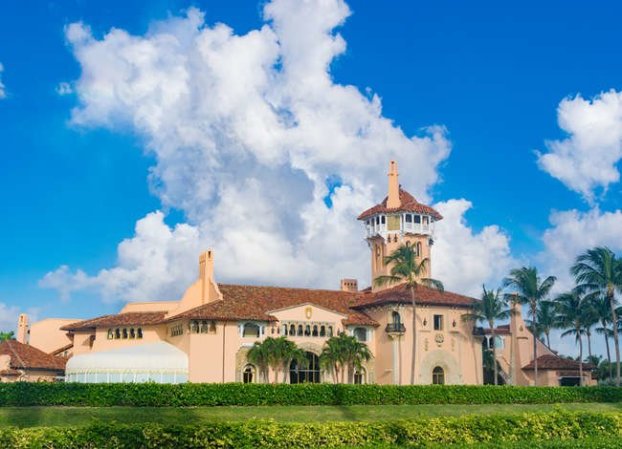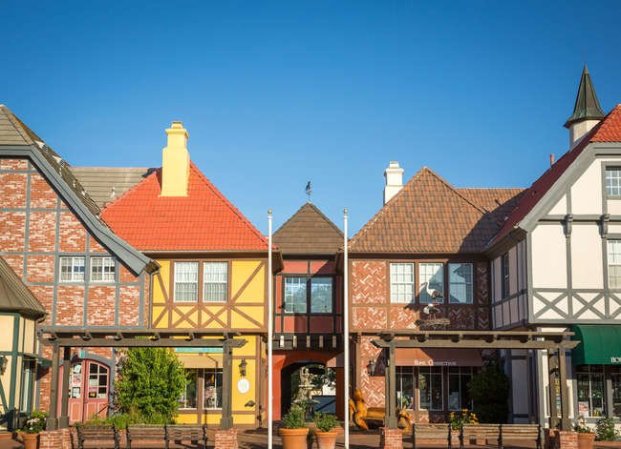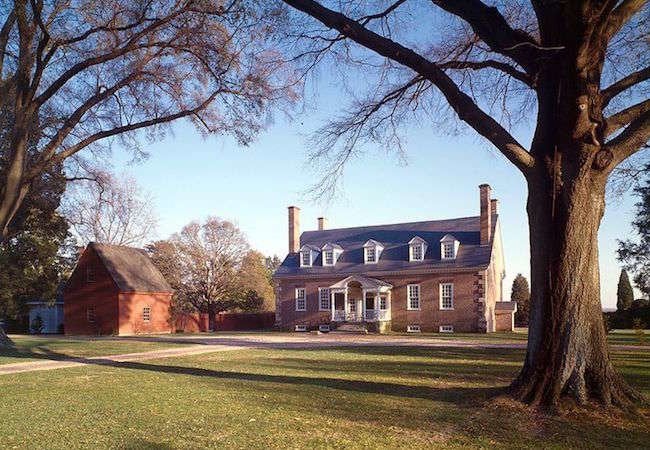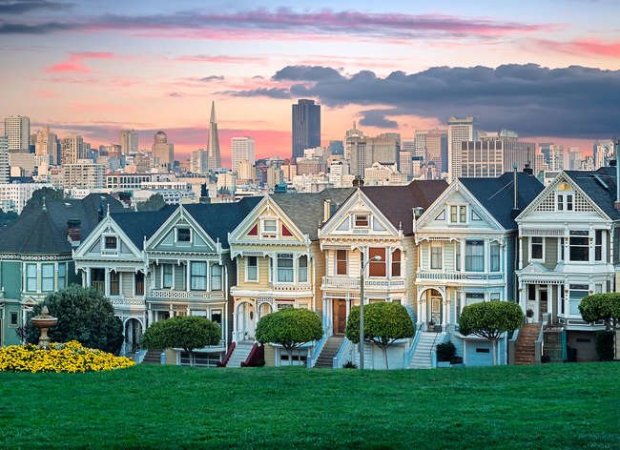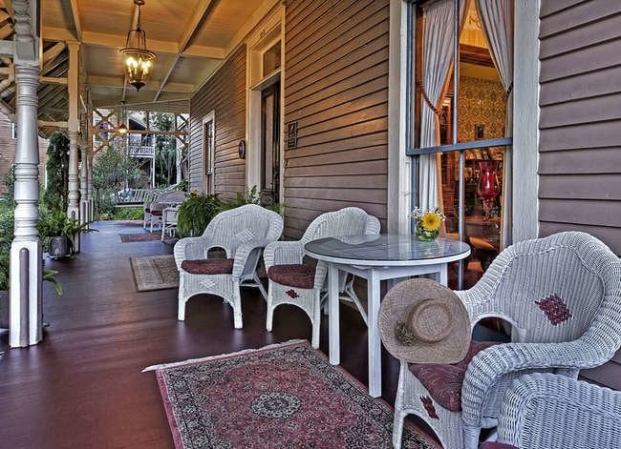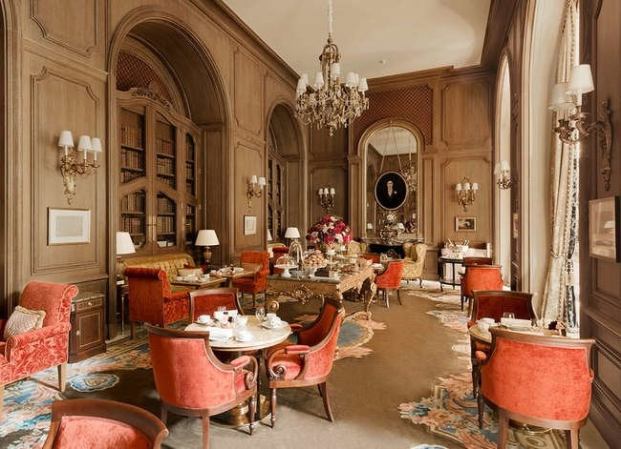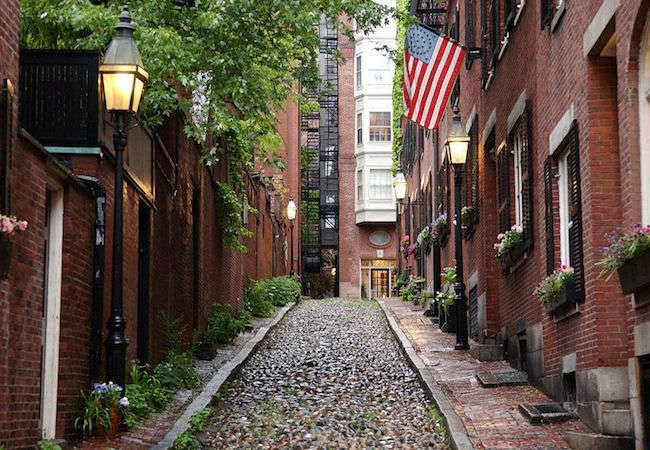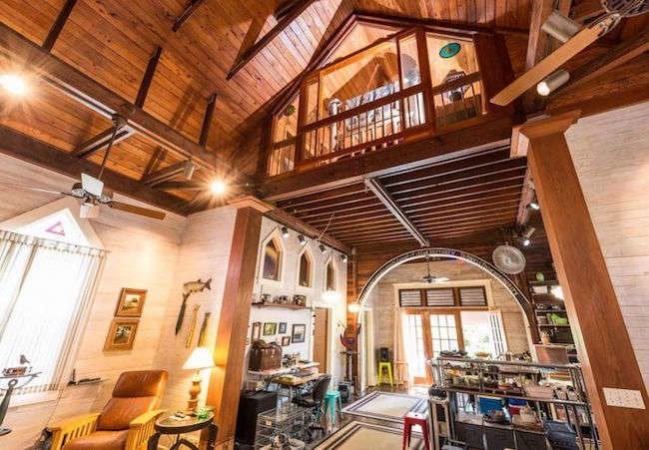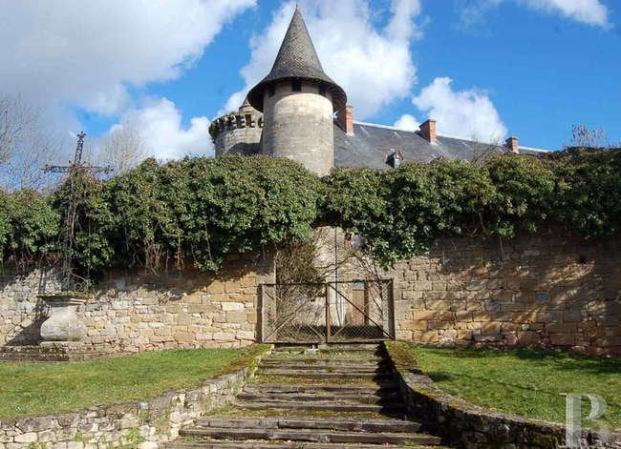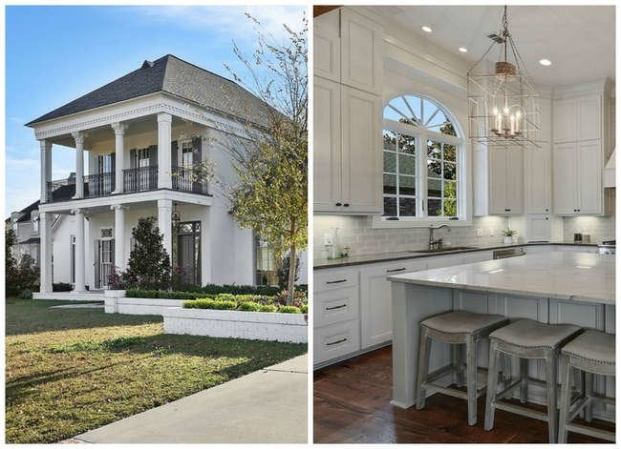We may earn revenue from the products available on this page and participate in affiliate programs. Learn More ›
Noteworthy Names
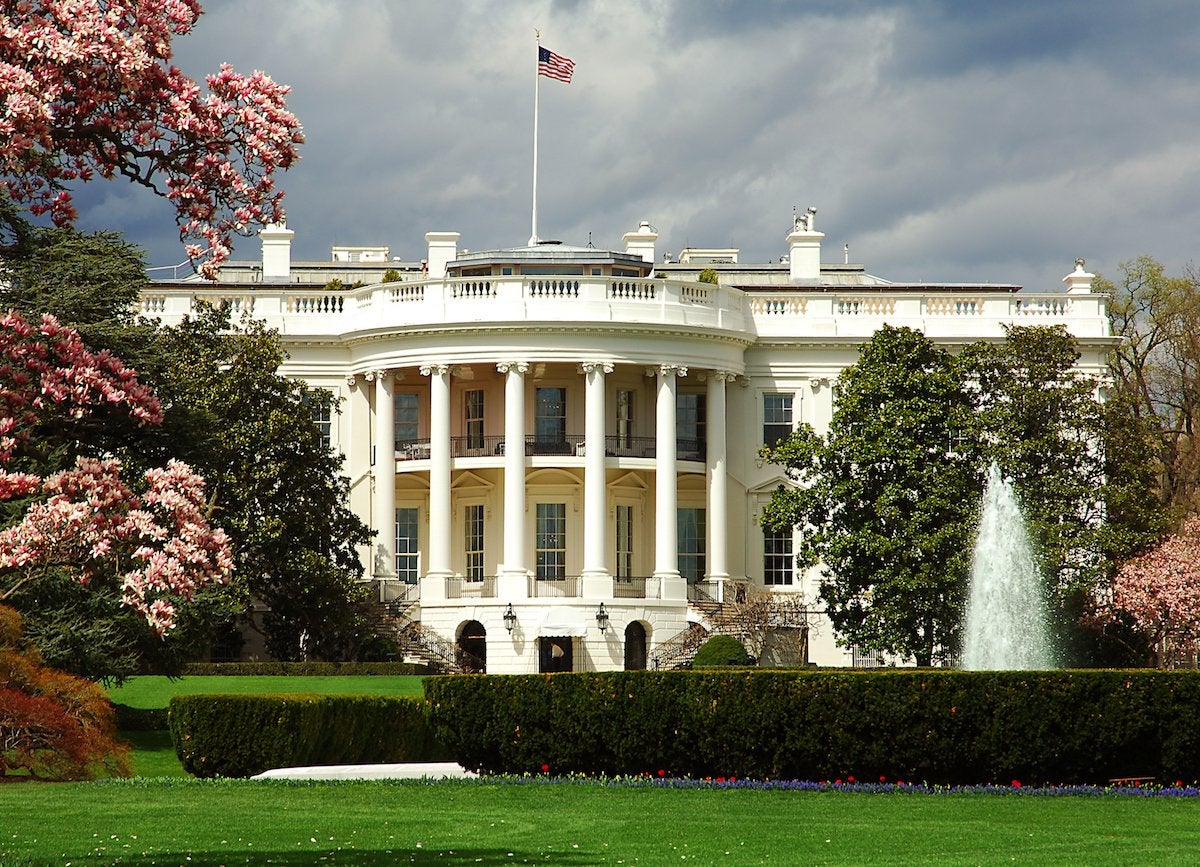
Before receiving its famous moniker, the most prominent residence on Pennsylvania Avenue was known at various times as the “President’s Palace,” the “President’s House,” and the “Executive Mansion.” It was not until 1901 that our nation’s 26th president, Theodore Roosevelt, aptly dubbed the imposing ivory structure the “White House”—a name that has stuck ever since.
The Starter House
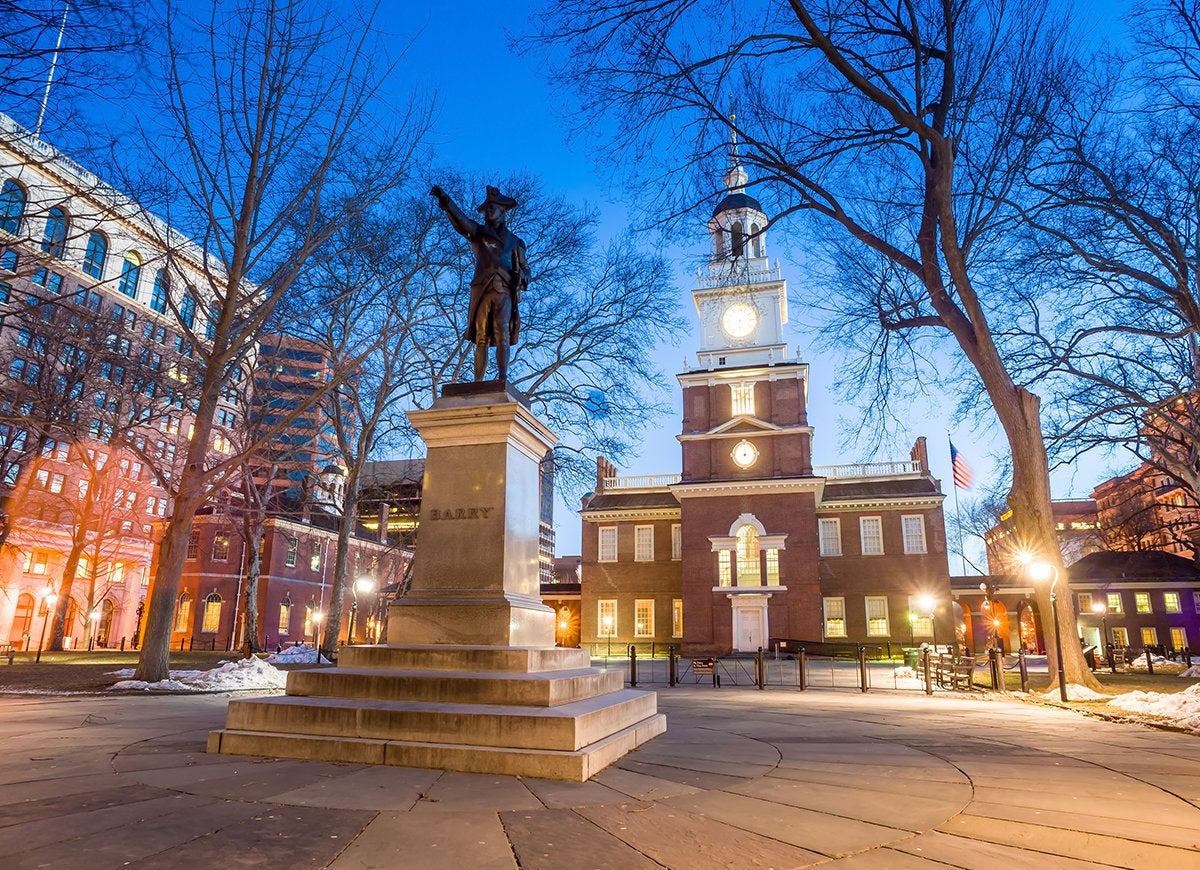
While the nation’s new capital city was under construction, a well-appointed brick mansion in the acting capital of Philadelphia was put at President Washington’s disposal. It may be that the City of Brotherly Love hoped their hospitality could entice the president to make the town his permanent residence. Though both George Washington and John Adams lived at this alternative accommodation, Congress’s determination to move the capital to the Potomac meant that D.C. would be the final resting place of the White House.
A Case of Bad Timing
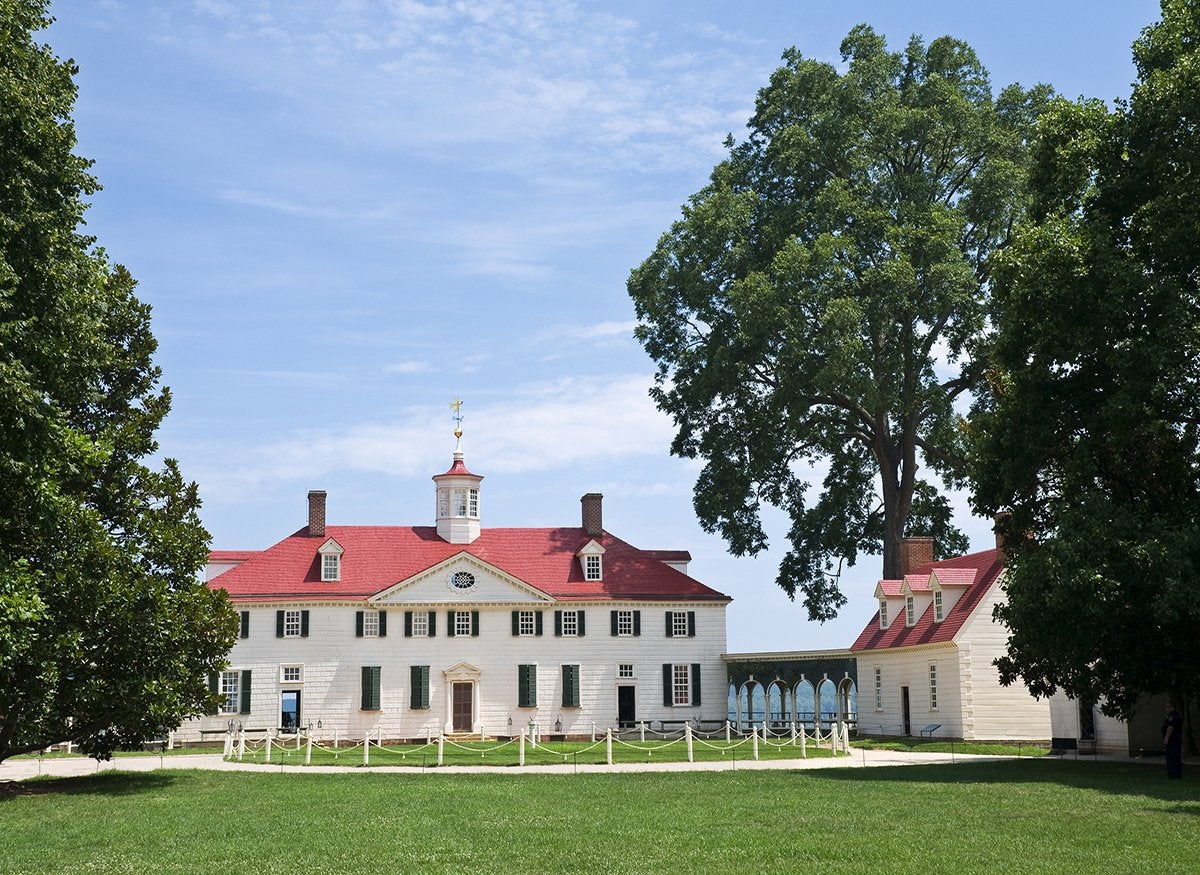
George Washington may be our nation’s first president, but he never set foot in the President’s Palace. The White House was under construction during his two terms in office, and at the end of his presidency, the founding father returned to Mount Vernon, his farm in Virginia. In fact, the White House was not completed until 1800, the year after Washington’s death. Our second president, John Adams, who was elected in 1796, became the first occupant of the official presidential quarters.
Think Big
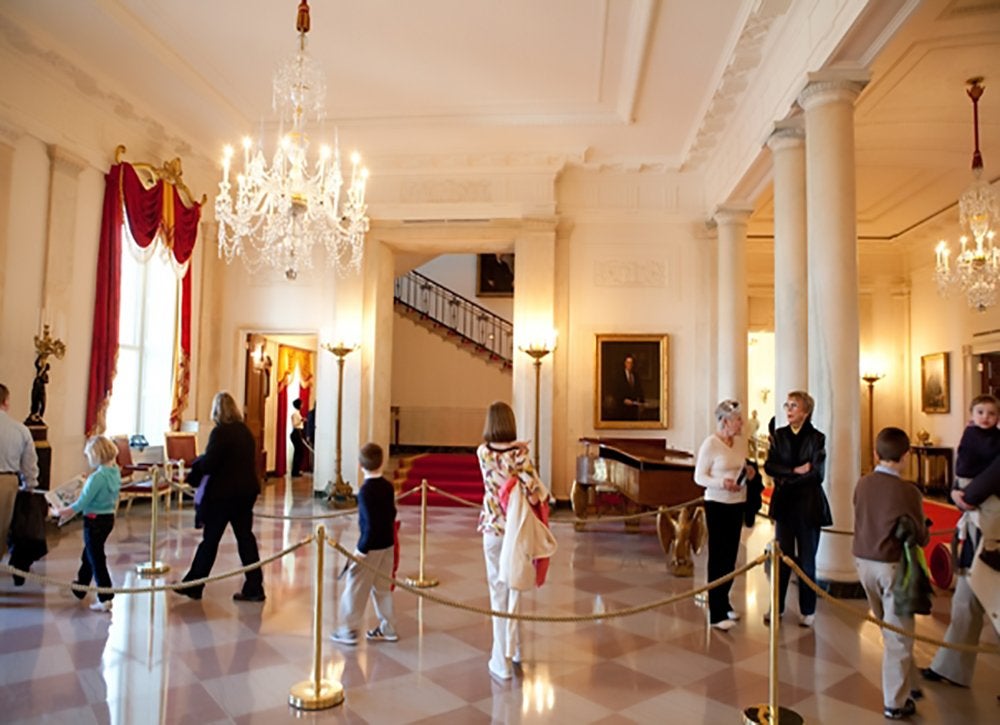
whitehouse.gov via S. Appleton
Although we think of the White House largely as the living quarters of the first family, the roomy residence could accommodate a small army in its whopping 132 rooms and 35 bathrooms, which occupy six floors. Given that the mammoth mansion encompasses 412 doors, 147 windows, 28 fireplaces, eight staircases, and three elevators, visitors—and even longtime staff members—can easily get lost.
Related: 16 Iconic American Homes Torn Down Before Their Time
White House Worth

The first family lives in the White House rent-free—which is a good thing, considering that the cost of upkeep and utilities would create a serious budget deficit for the president. Although 1600 Pennsylvania Avenue is not on the market, Zillow estimates the value at $397 million. Not bad for the nation’s most famous home!
A Brush with Government
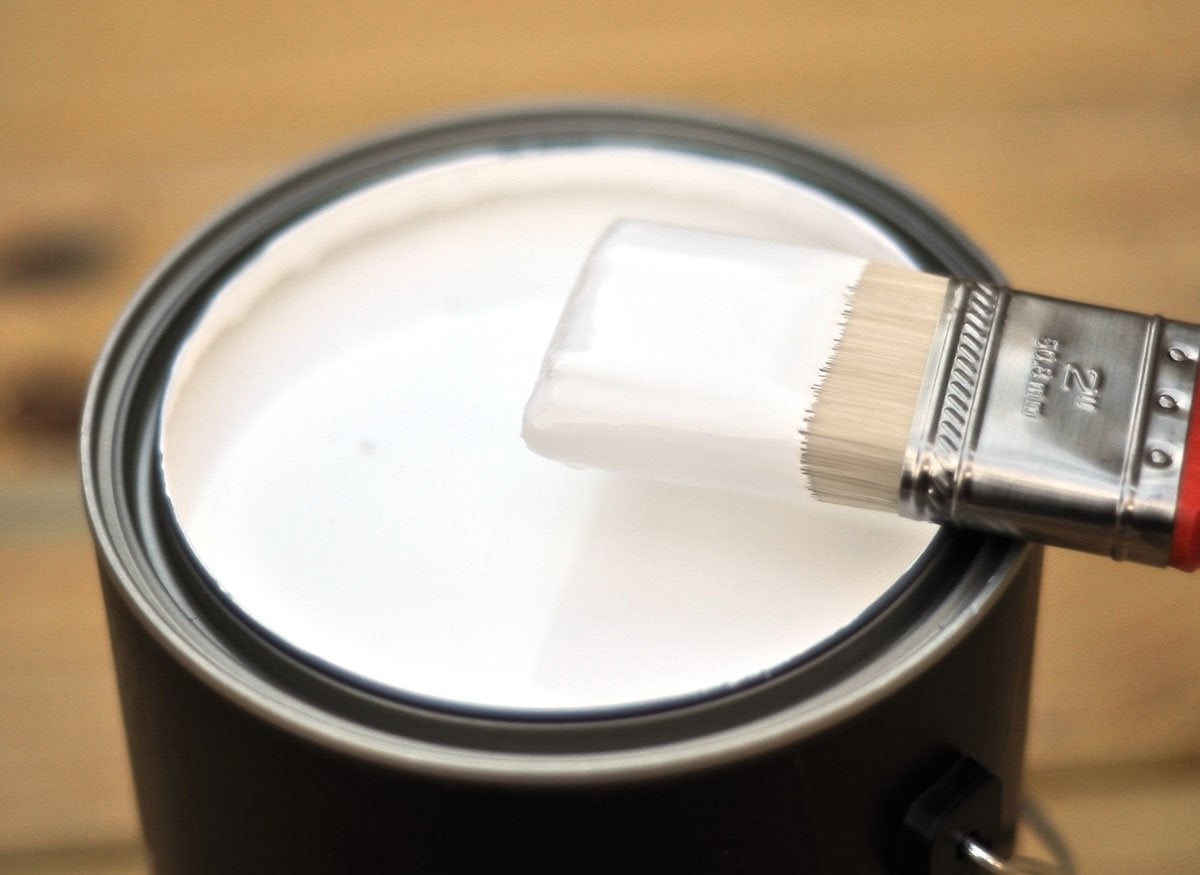
While it can take up to 20 gallons of paint to coat the exterior of a 2,000-square-foot home, that same volume of paint would make a mere splash on the daunting dimensions of the White House. The 168-foot-long structure would require 570 gallons of paint to completely cover its exterior!
Irish Charm
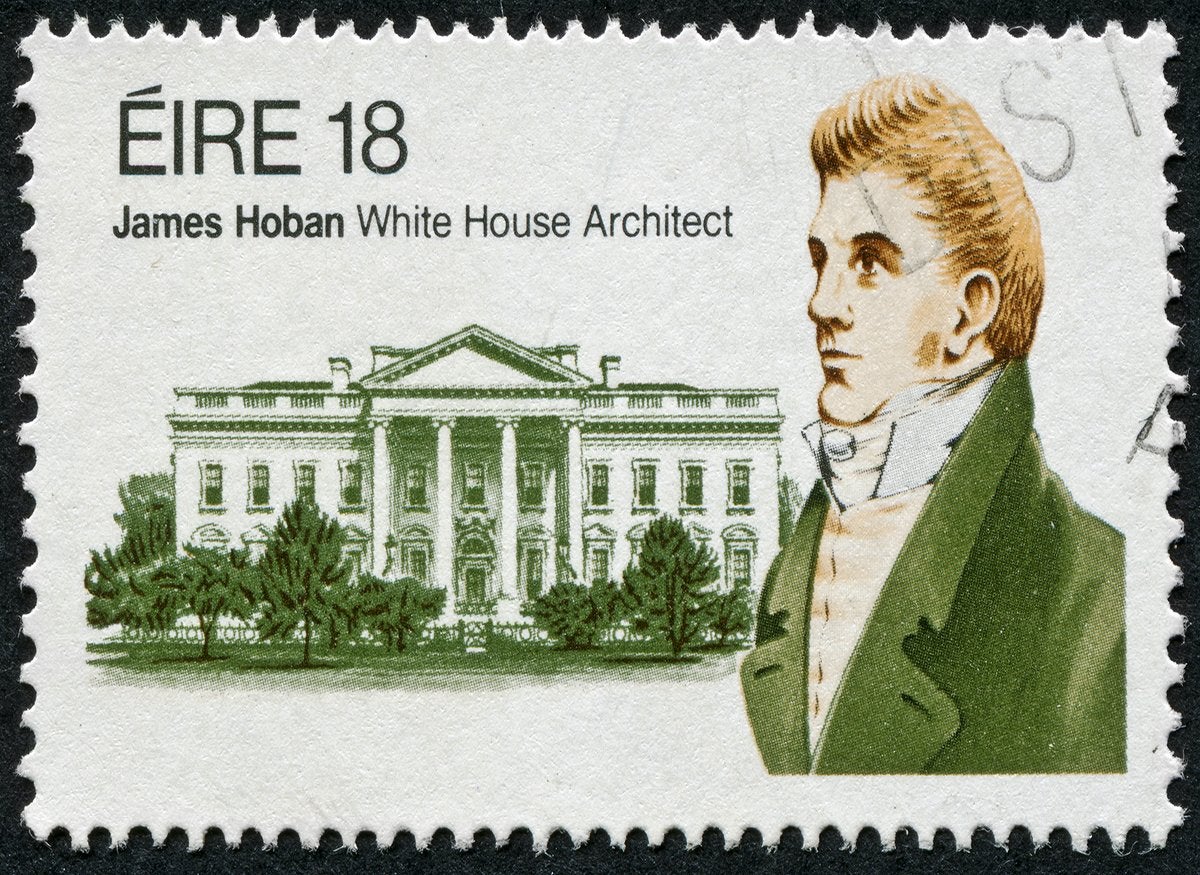
One of the most influential figures associated with the construction of the White House is also one of the least known. While George Washington selected the site for the hallowed house in 1791, Irish-born architect James Hoban was responsible for its design and construction as well as its rebuilding after it was ravaged by fire during the War of 1812.
Be My Guest, Mr. President
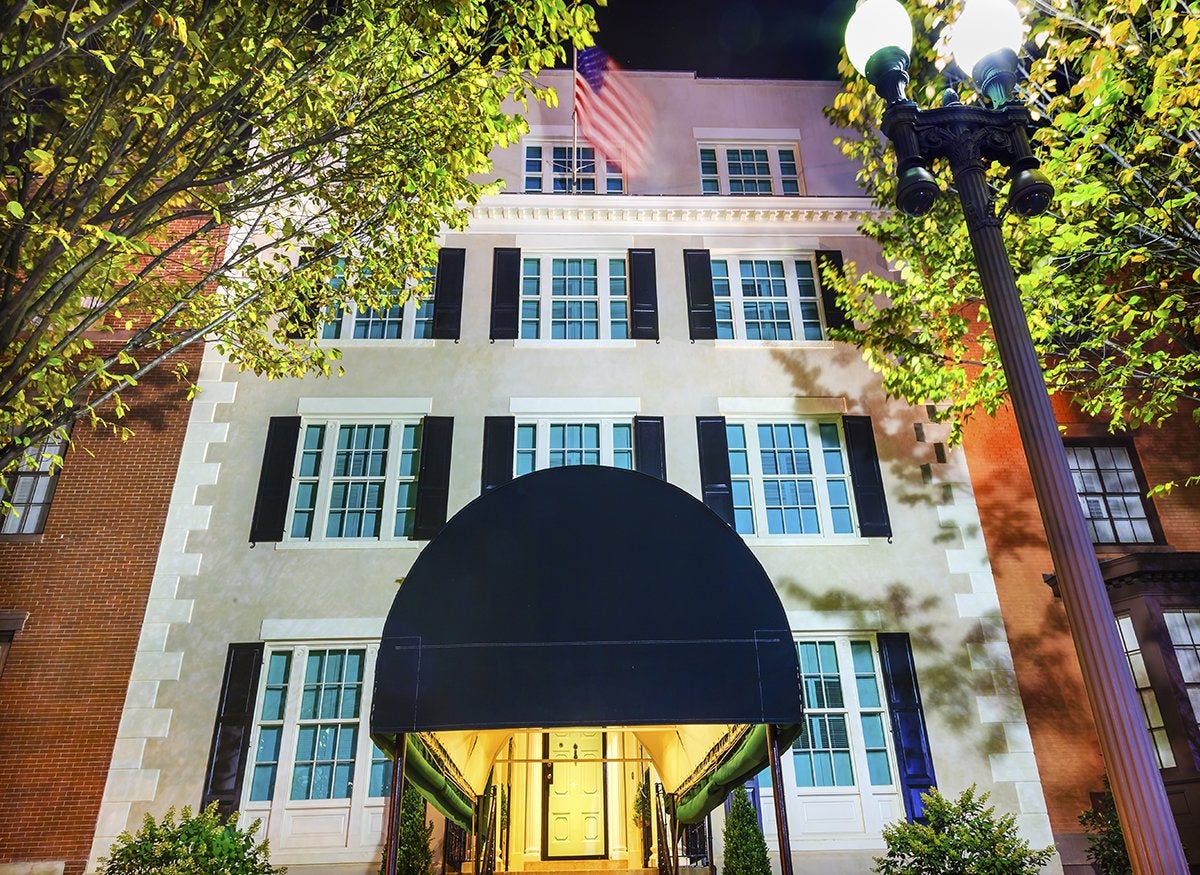
Have you ever wondered where the president stays while his house is being renovated? When the White House underwent a total dismantling and reconstruction between 1949 and 1952 at the orders of then-President Harry S. Truman, Truman and his wife, Bess, had to seek shelter across the street at Blair House, otherwise known as the President’s guest house.
Bright Idea
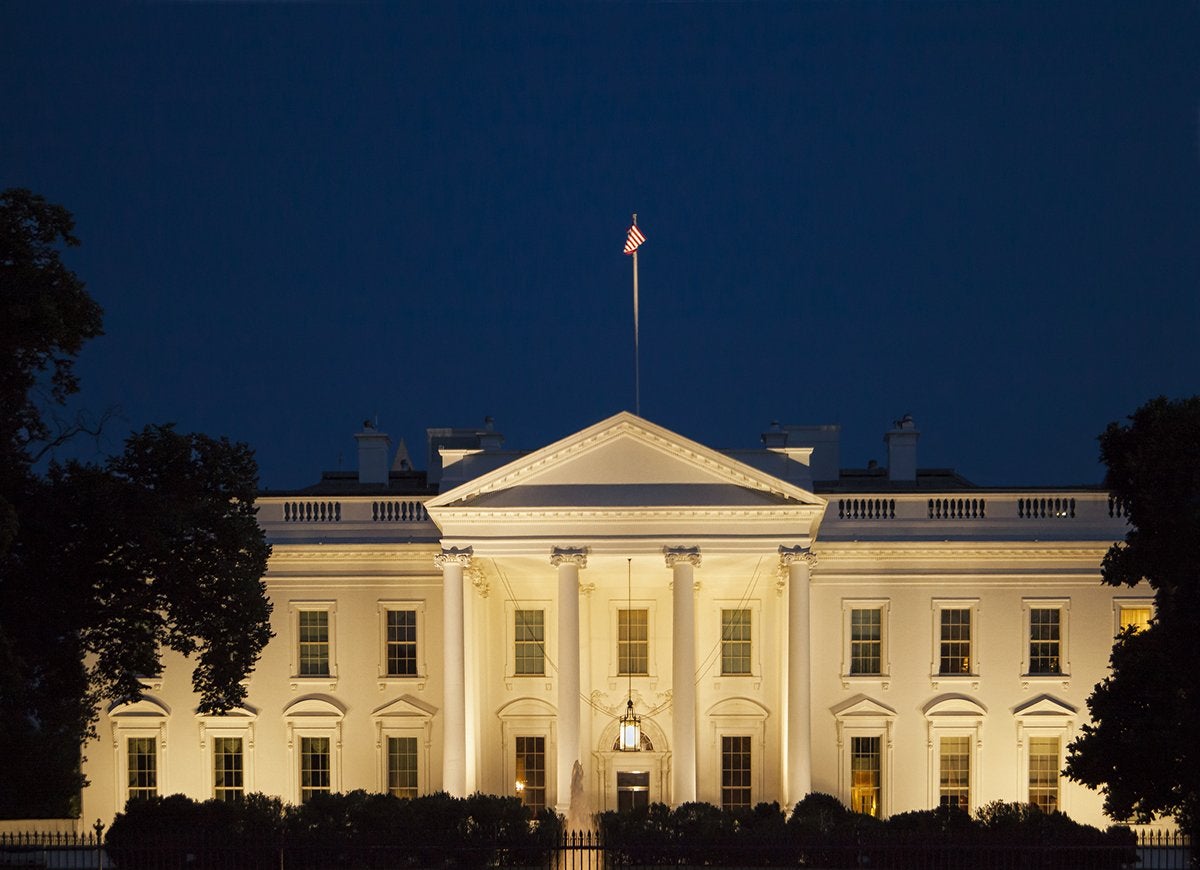
Modern-day presidents have their predecessor Benjamin Harrison to thank for the White House’s electricity, which was installed in 1891 by Edison General Electric Company at the behest of the 23rd president. Harrison and his wife, however, were so fearful of electrocution that they vowed not to touch the light switches and spent many a night with the lights on!
Interior Upheaval
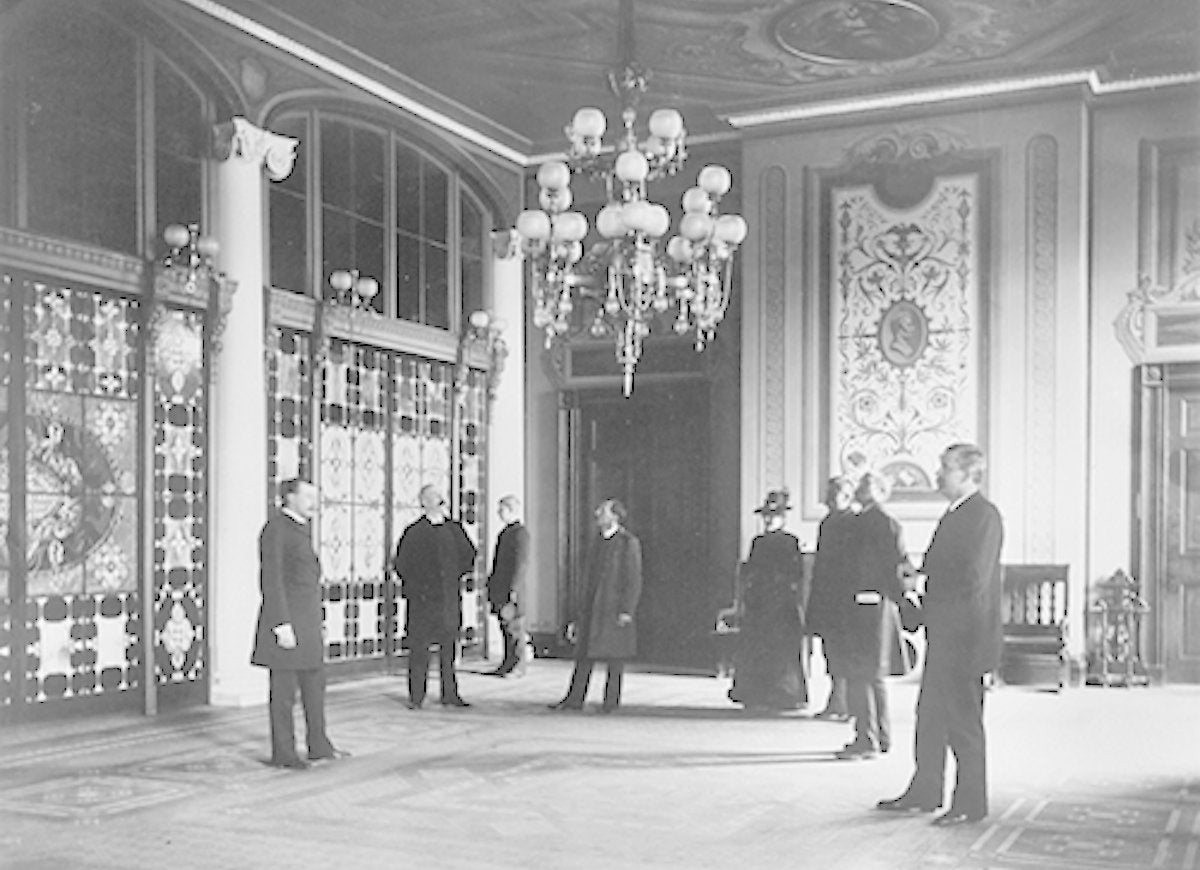
wikimedia.org via Library of Congress
Between wrangling with Congress and overseeing the country’s domestic and foreign policy, it would seem presidents have little time for interior decorating. Chester A. Arthur, however, proved otherwise. The 21st president, nicknamed “Elegant Arthur,” commissioned Louis Comfort Tiffany to redecorate the state rooms in the White House, in the process replacing 24 wagon loads of outdated furnishings with more fashionable wares.
Press Pool
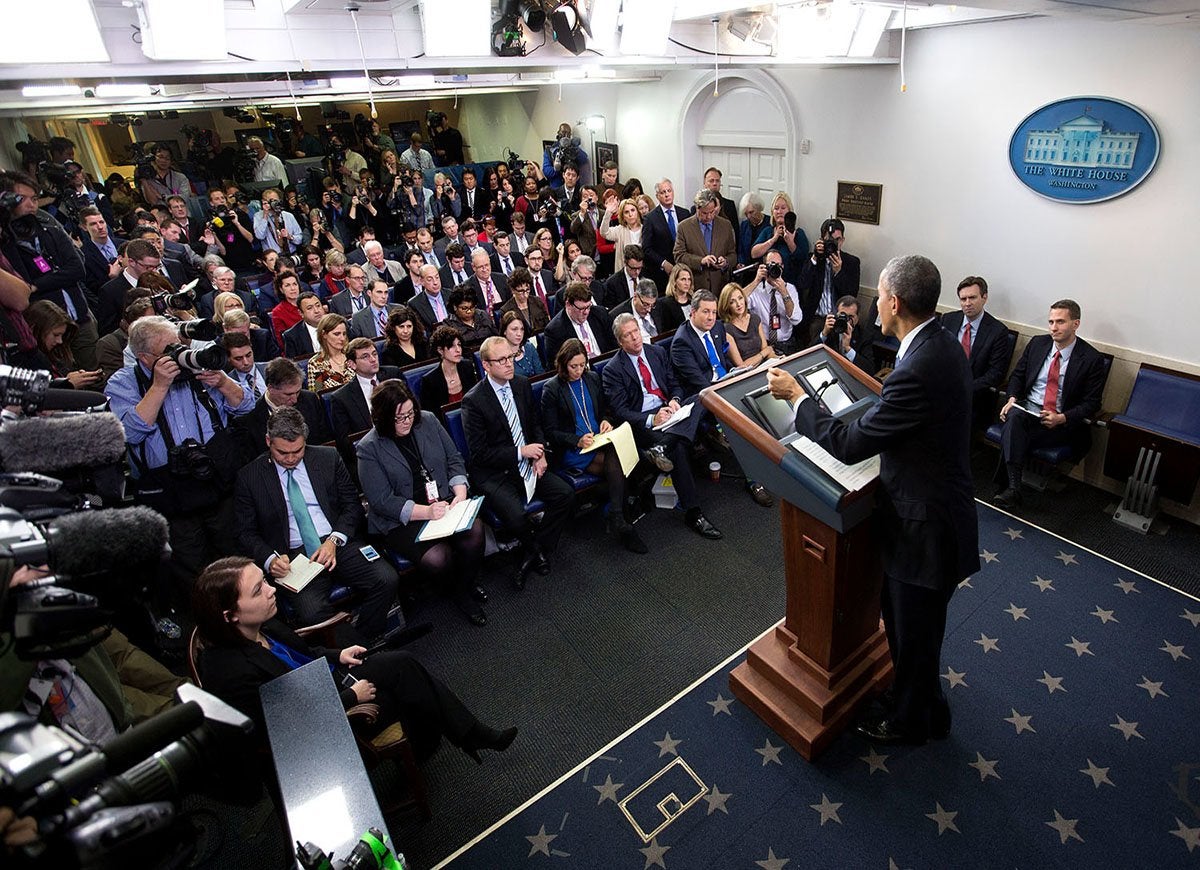
flickr.com via The White House
Members of the press corps have been shuffling into the press briefing room in the White House since 1970, when Richard Nixon pushed for a larger space to accommodate the growing numbers of reporters. Unbeknownst to many, however, what is now the James S. Brady Press Briefing Room, a bustling space in the west gallery of the White House, had once been an indoor swimming room. Franklin D. Roosevelt had the indoor aquatic arena built in 1933 in place of the old laundry quarters and swam in it religiously to help soothe his polio.
The Other National Mall
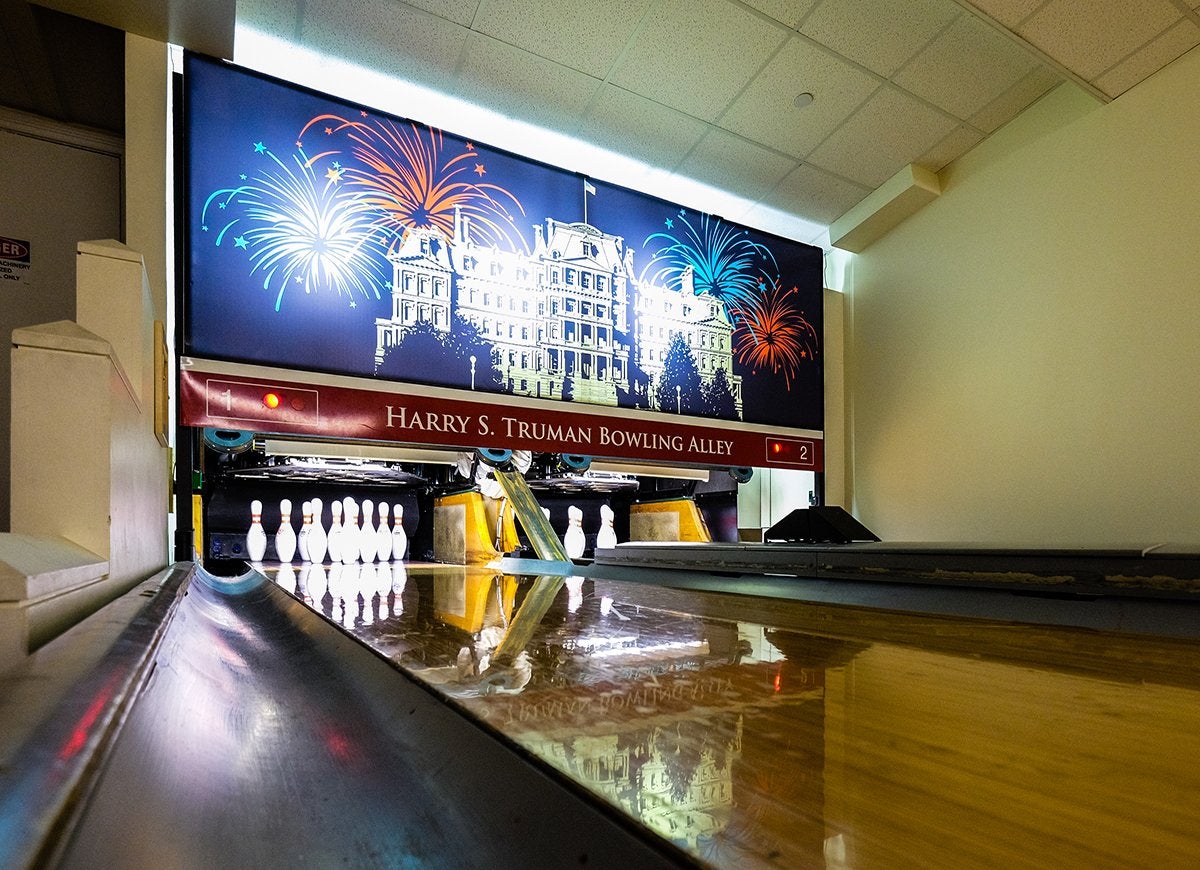
flickr.com via The Q Speaks
Situated below the North Portico, the basement of the White House could rival any indoor shopping mall. The space includes a flower shop; the White House carpenters’ and engineers’ shop, which is responsible for repairing and maintaining furnishings and equipment; a dentist’s office; and even a bowling alley added by Richard Nixon in 1969.
A Walk in the White House Park
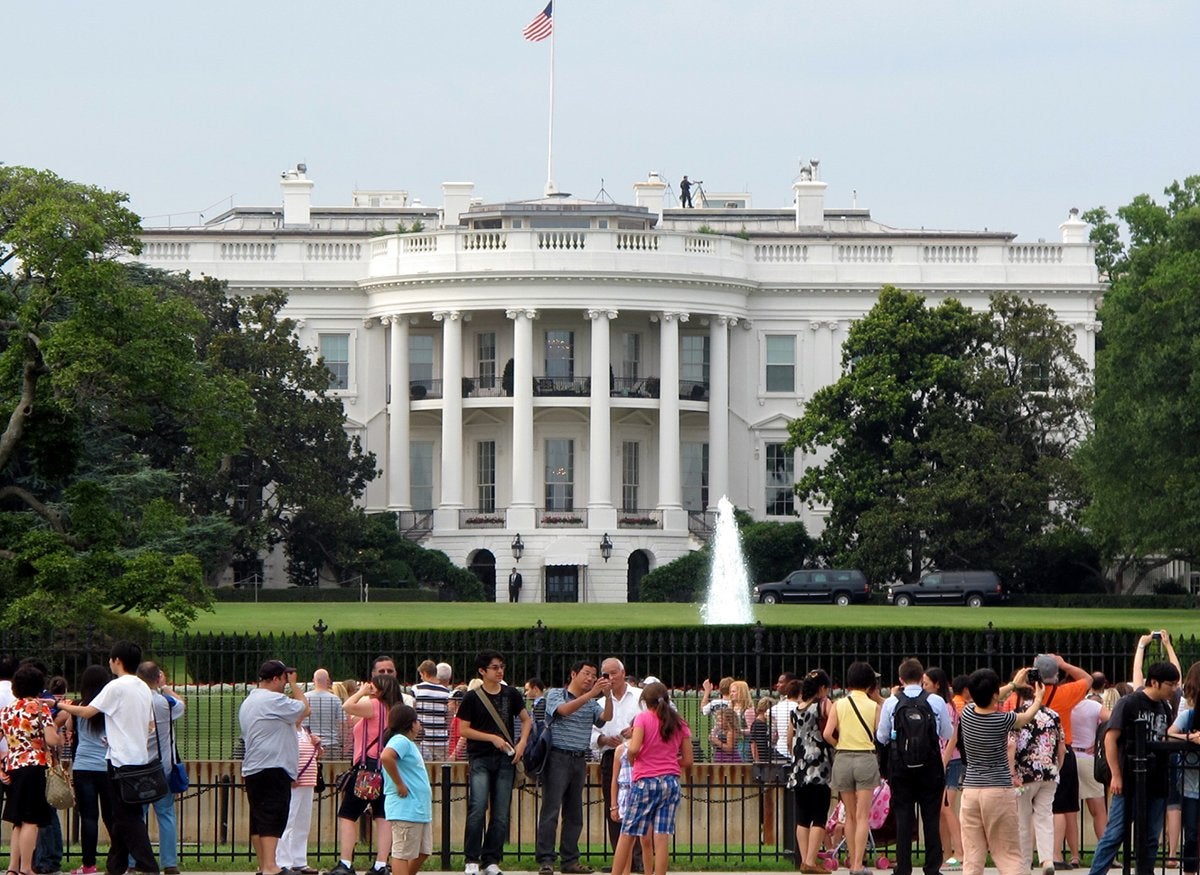
flickr.com via frankieleon
Every day, tourists flock to the gates of the White House to admire the verdant, impeccably groomed grounds. But they may be unaware that the house and grounds, collectively known as President’s Park, is designated as one of 59 U.S. National Parks. President’s Park, spanning 18 acres, is immaculately maintained by 13 staff members, among them eight gardeners and a chief horticulturist.
Winging It
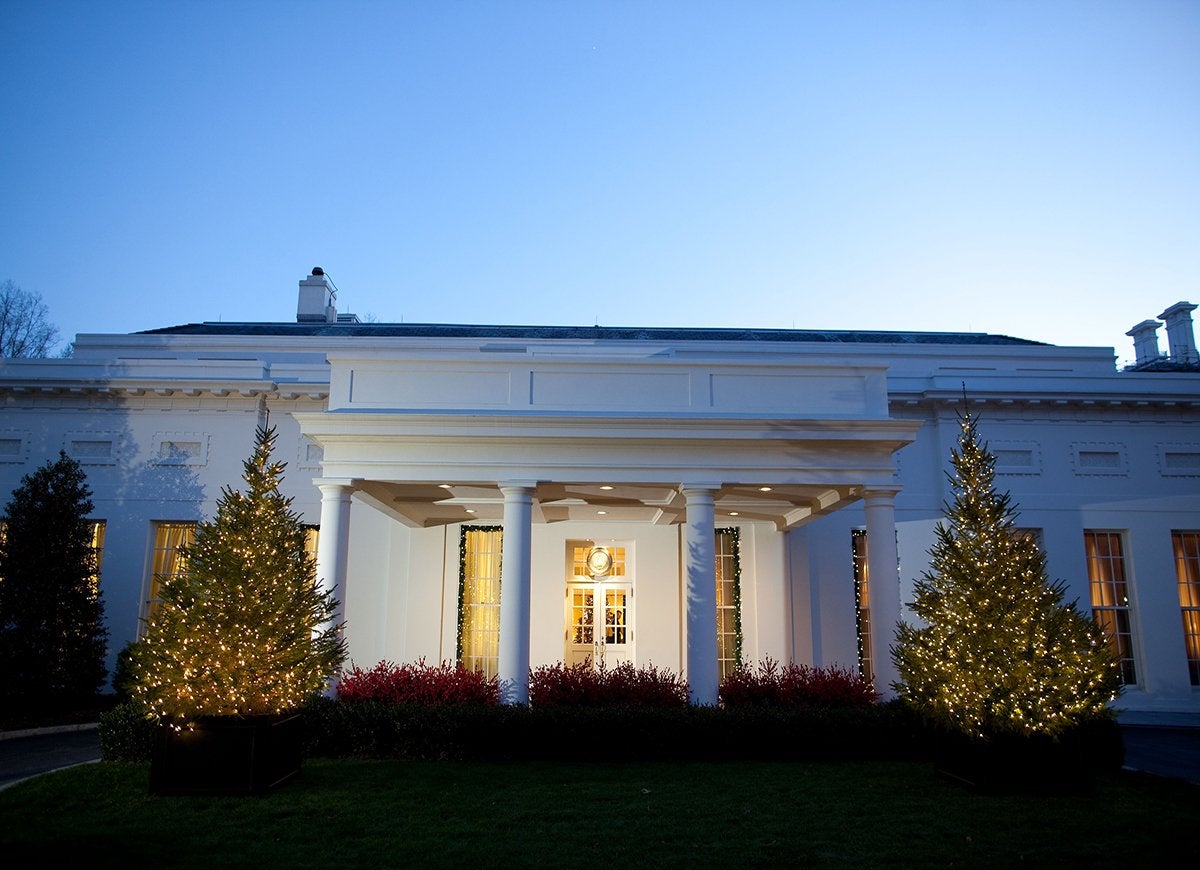
flickr.com via The White House
Before the West Wing was constructed, and long before the eponymous television series became a runaway hit, the president and his staff worked on the second floor of the White House. Finding the space too small to squeeze in both his staff and his family of six, President Theodore Roosevelt, with the approval of Congress, initiated a half-million-dollar renovation to relocate the Office of the President to a new structure known thereafter as the West Wing.
Not-So-Perfect Circle
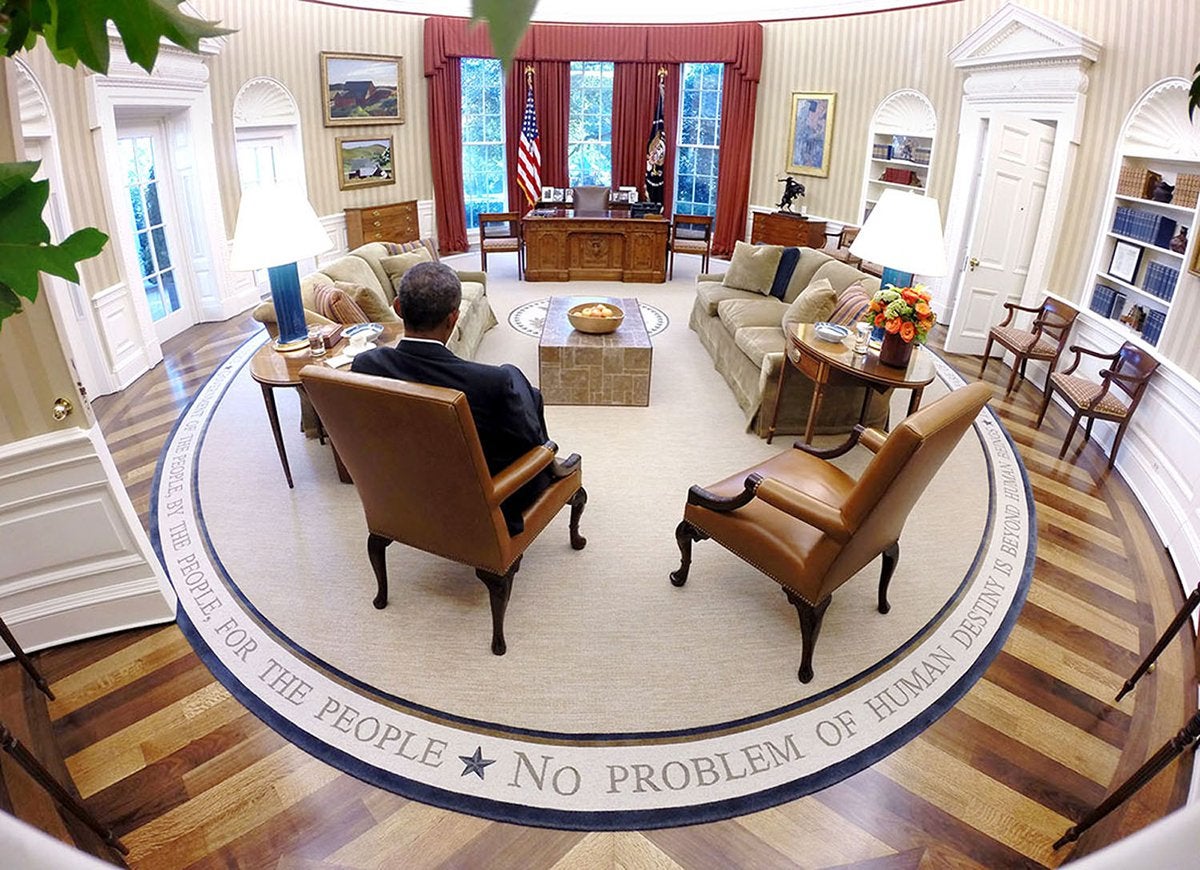
flickr.com via The White House
Though the Oval Office has served as the site of momentous speeches and events, the unconventional geometry of the president’s office enjoys a historic appeal of its own. The space was initially a secretary’s office, which president William H. Taft altered to form the 34-by-27-foot oval that became known as the Oval Office.
Party with the President
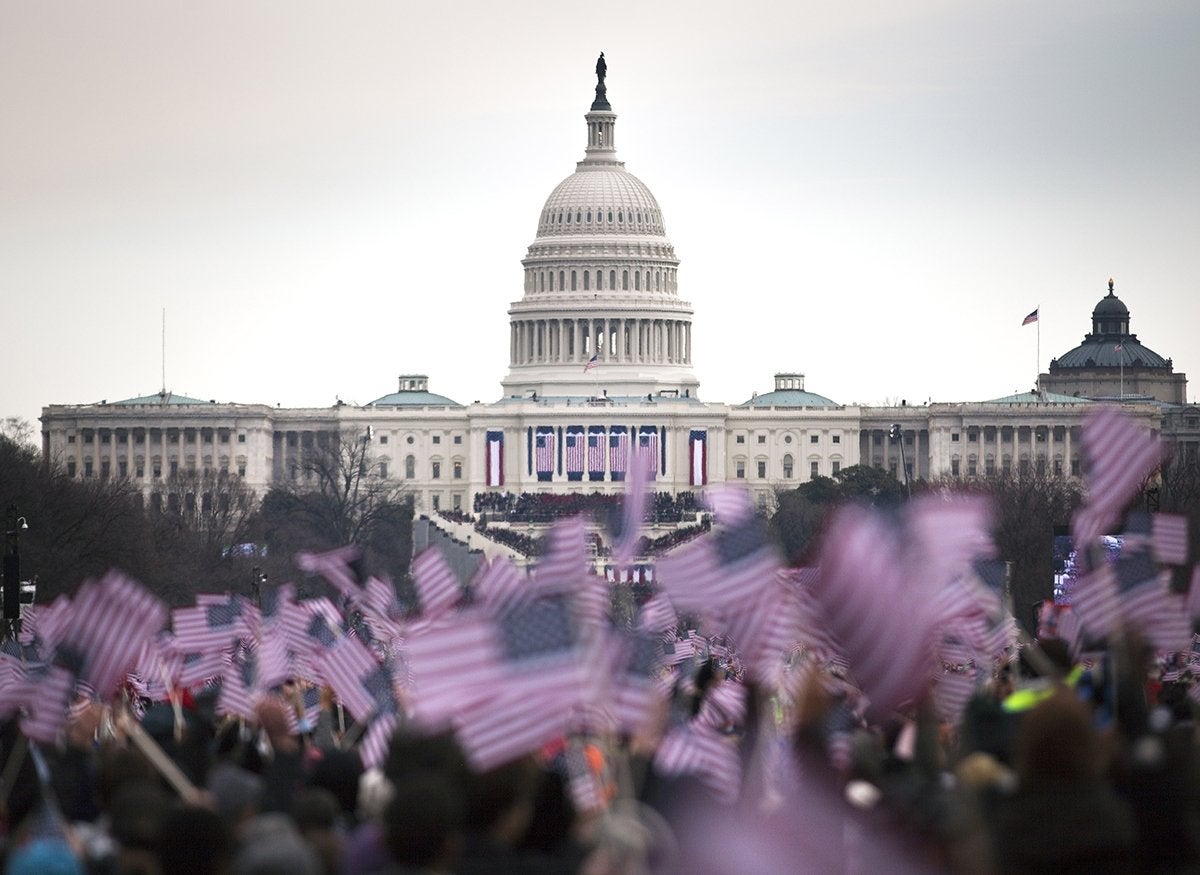
Inauguration Day may be a prim and proper celebration today, but the affair was more raucous in days gone by when the White House was open to the public for the president to greet visitors personally. On Andrew Jackson’s Inauguration Day in 1829, the White House was thronged by so many well-wishers that Jackson himself hid out at a nearby hotel while White House staff diverted the unruly crowd to the lawn for orange cocktails.
In Wedded Bloom
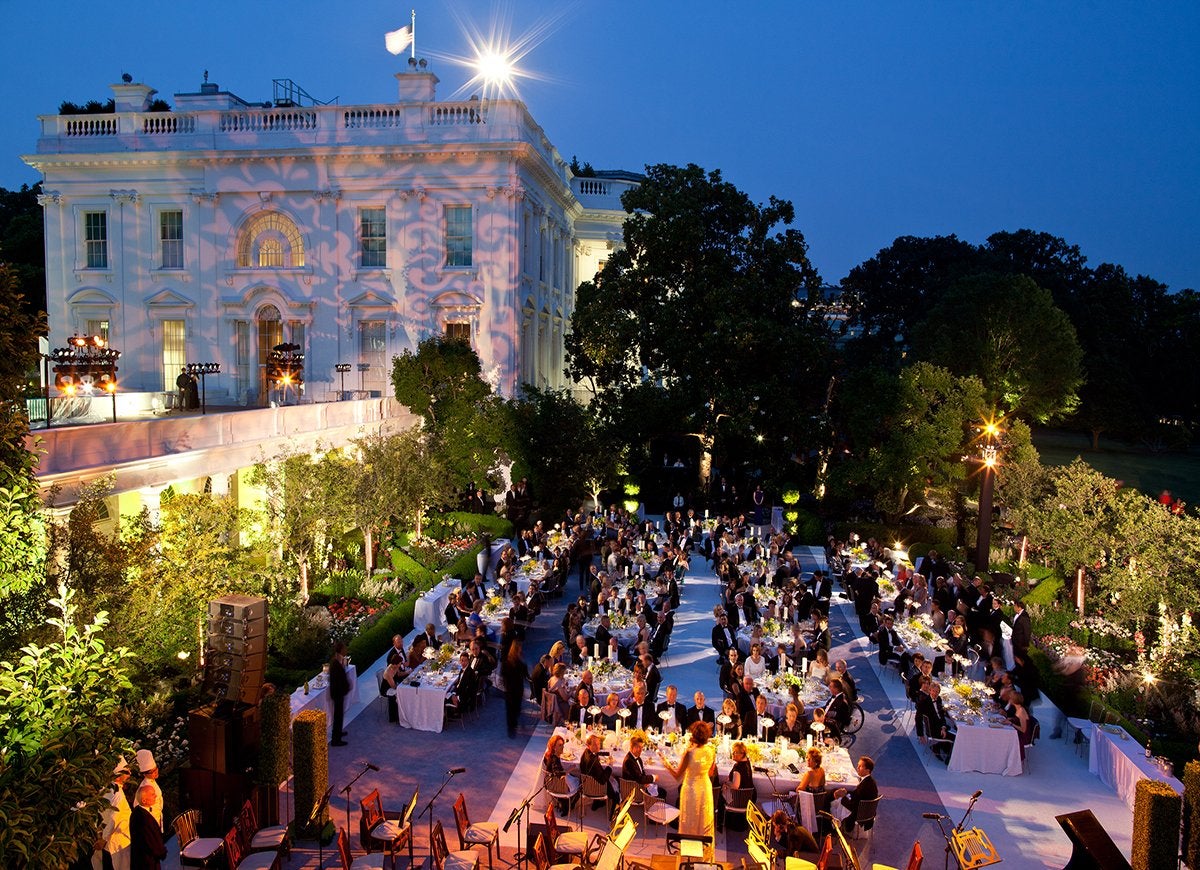
flickr.com via The White House
The White House Rose Garden has been the site of many presidential firsts, from John F. Kennedy’s reception for the Project Mercury astronauts to family celebrations. In 1971, President Richard Nixon’s daughter Tricia became the only first daughter to date to be married in the Rose Garden. Twenty-three years later, President Bill Clinton’s brother-in-law Anthony Rodham wed Nicole Boxer on the White House grounds.
Up a Tree
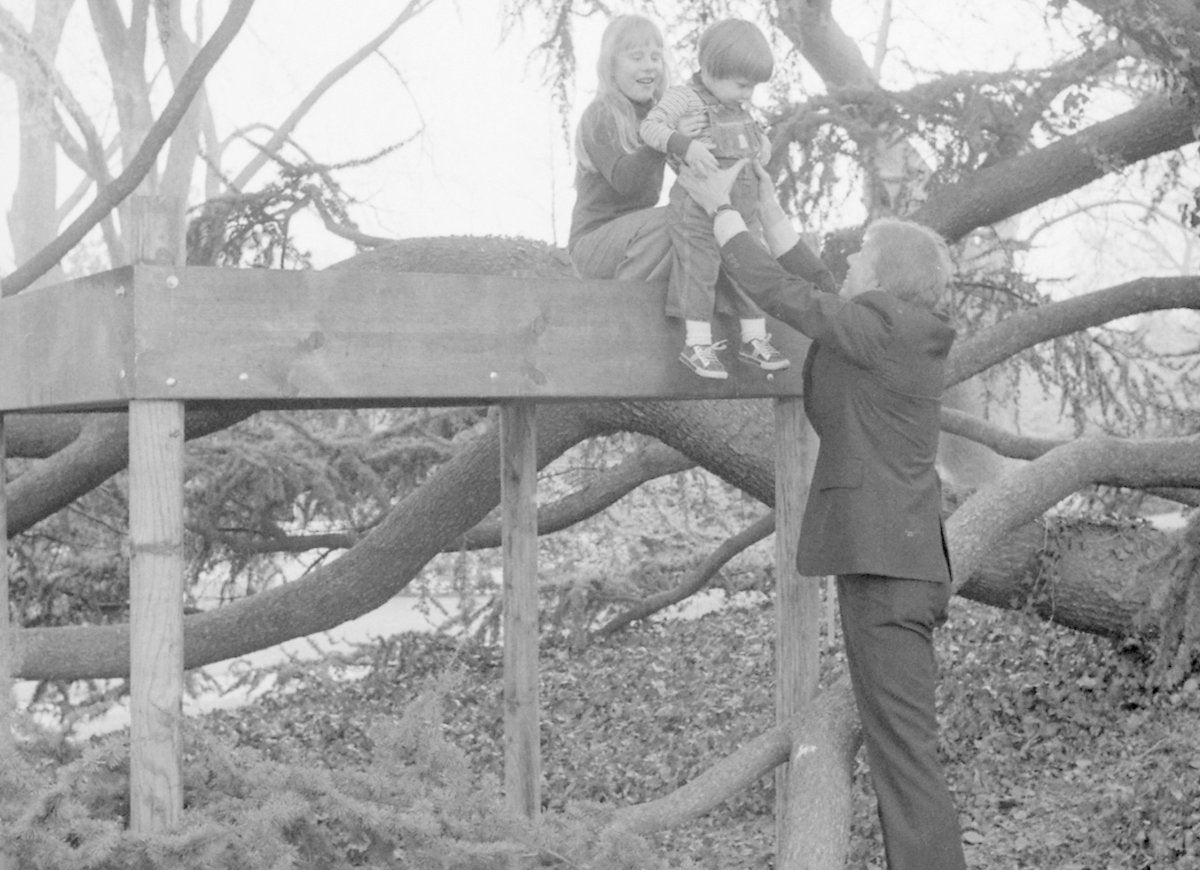
To make the White House more kid-friendly, President Jimmy Carter had a tree house built on the South Lawn for his daughter, Amy. Although a White House carpenter was credited with building the play structure, Carter played an instrumental role in designing the tree house atop posts on the ground and without nails so as to preserve the historic trees on the lawn.
Rec Rooms
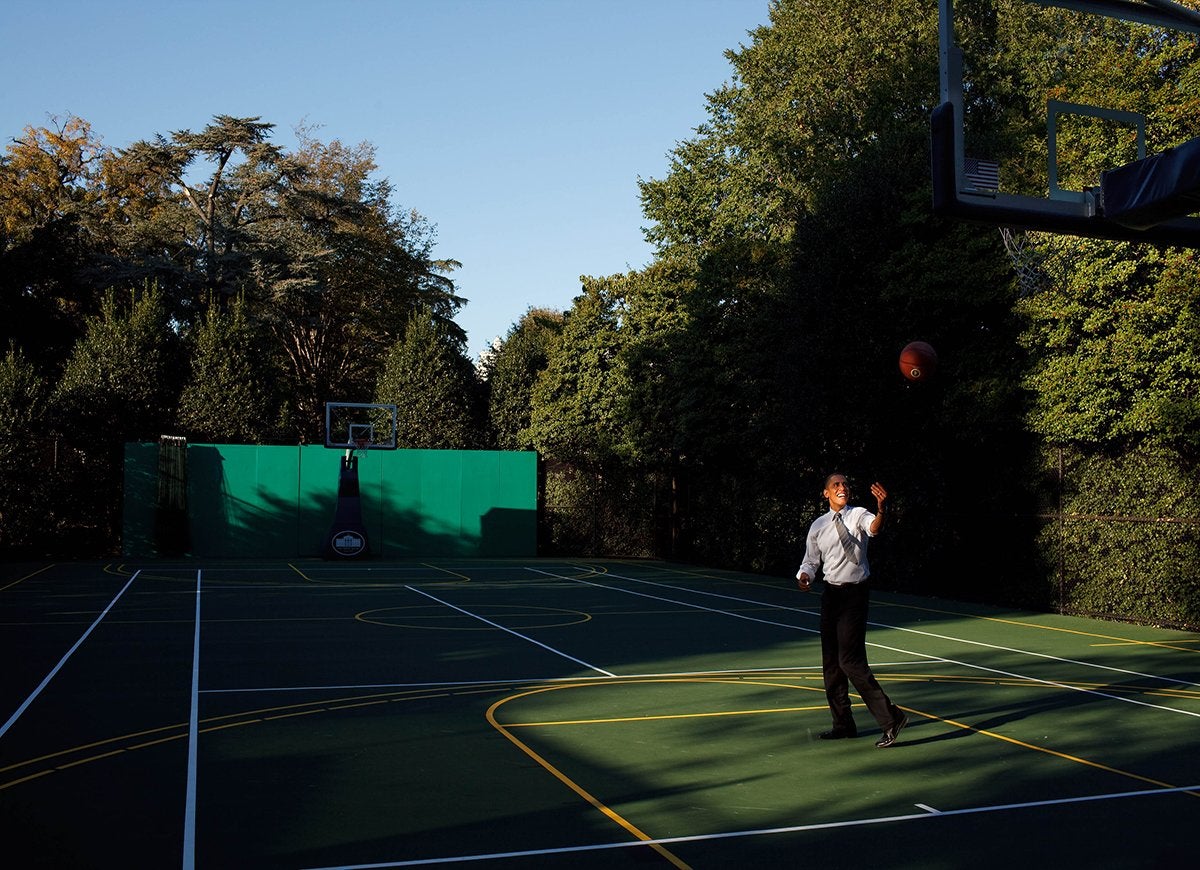
flickr.com via The White House
Who said presidents don’t have any fun? The head of state can spend his or her downtime at the White House tennis court, swimming pool, running track, movie theater, billiards room, or bowling alley. President George H.W. Bush famously invited tennis champions to the tennis court, which President Barack Obama later converted into a dual-purpose tennis and basketball court.
Fast Food
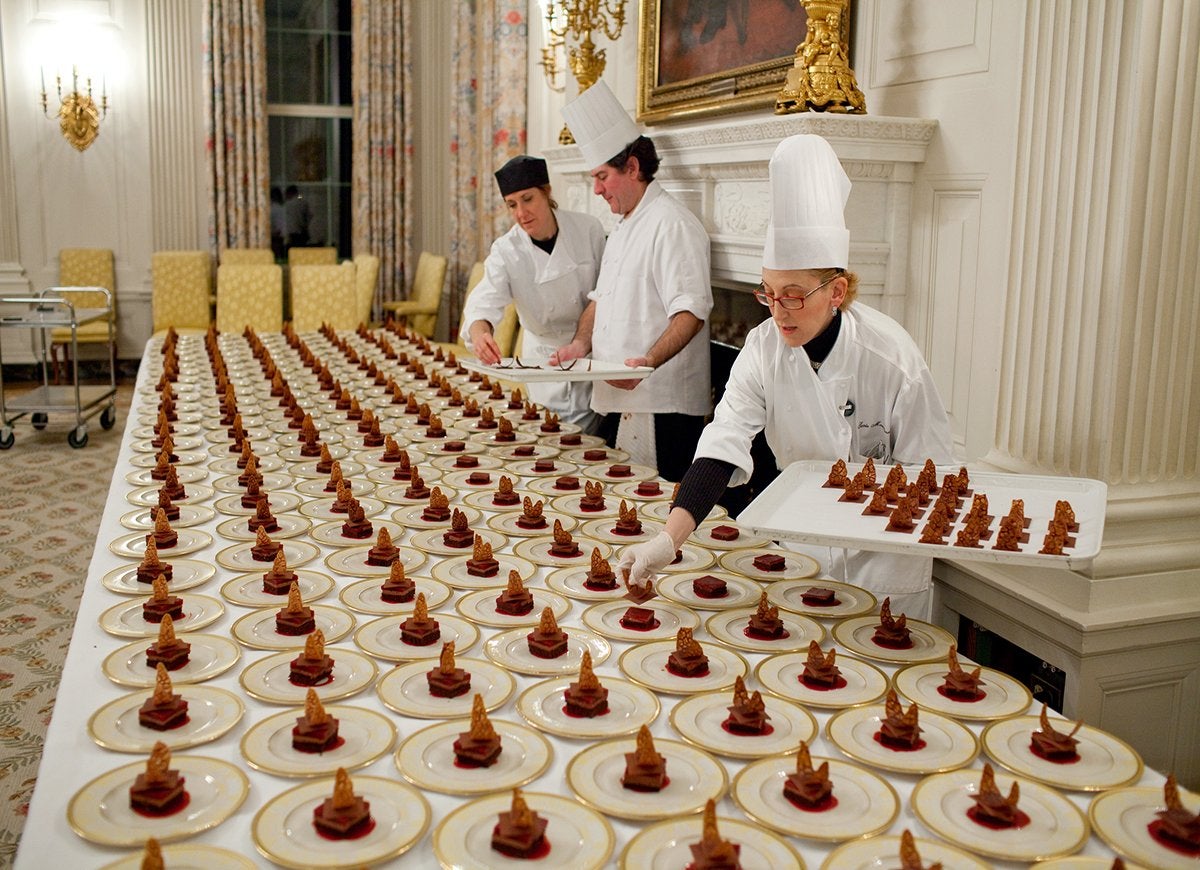
flickr.com via The White House
Handling everything from daily dinners for the first family to elaborate receptions for foreign heads of state, the White House kitchen is busy around the clock whipping up gourmet creations in record time. With the help of five full-time chefs, the White House kitchen can serve appetizers to over 1,000 guests at once, or cook a full sit-down dinner for up to 140 guests.
Presidential Paw-Dom
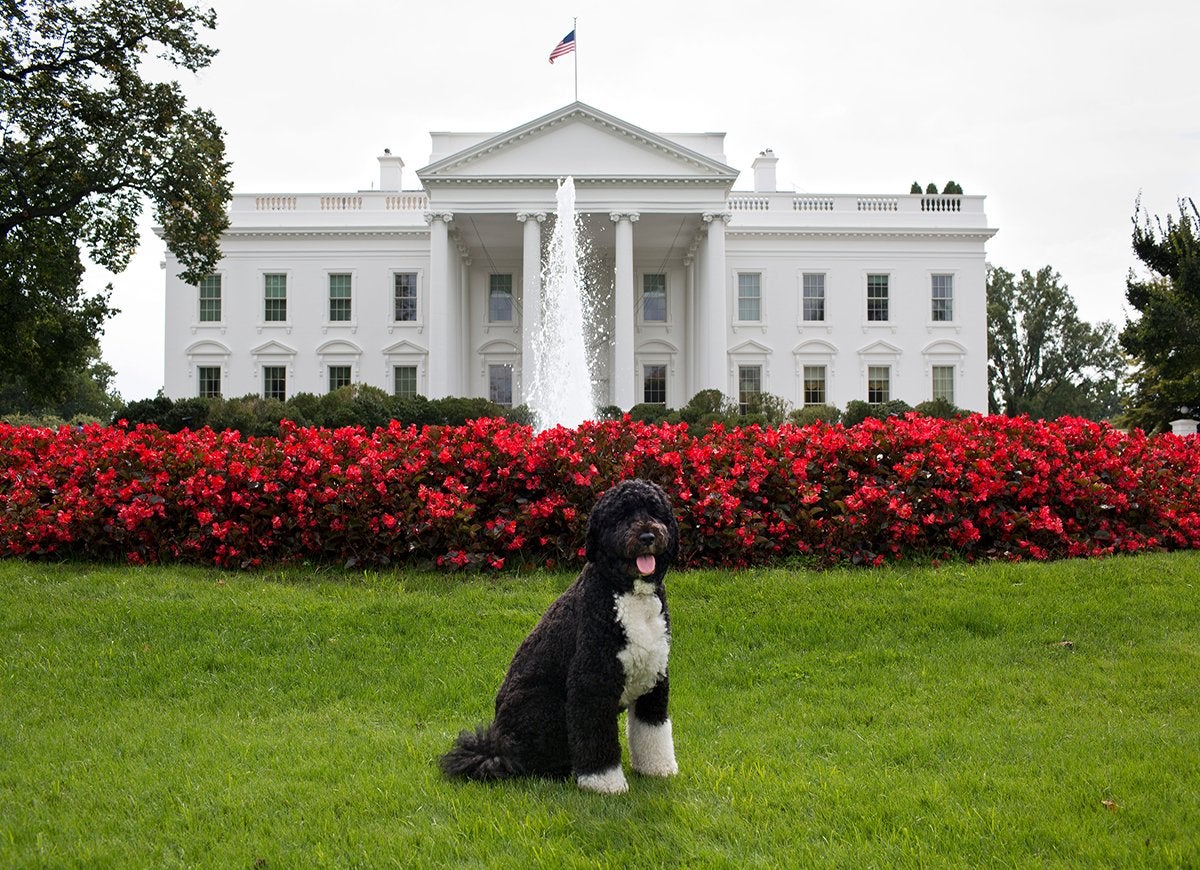
flickr.com via The White House
From President Adams’s horse, Cleopatra, to President Obama’s dog, Bo, presidential pets are treated like royalty at the White House. While most presidents have opted for the usual domesticated animals, others have welcomed more exotic creatures into the first family. John Quincy Adams, for instance, kept an alligator that is rumored to have lived in the White House bathroom, while President Martin Van Buren was presented with two rambunctious tiger cubs by the Sultan of Oman. Congress promptly sent them off to the zoo.
